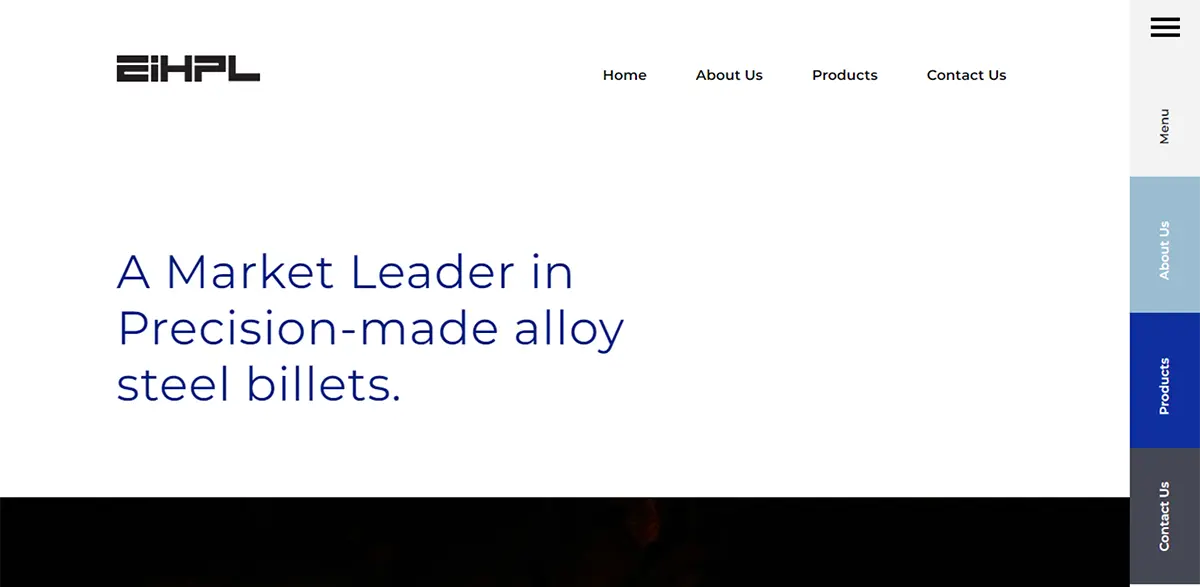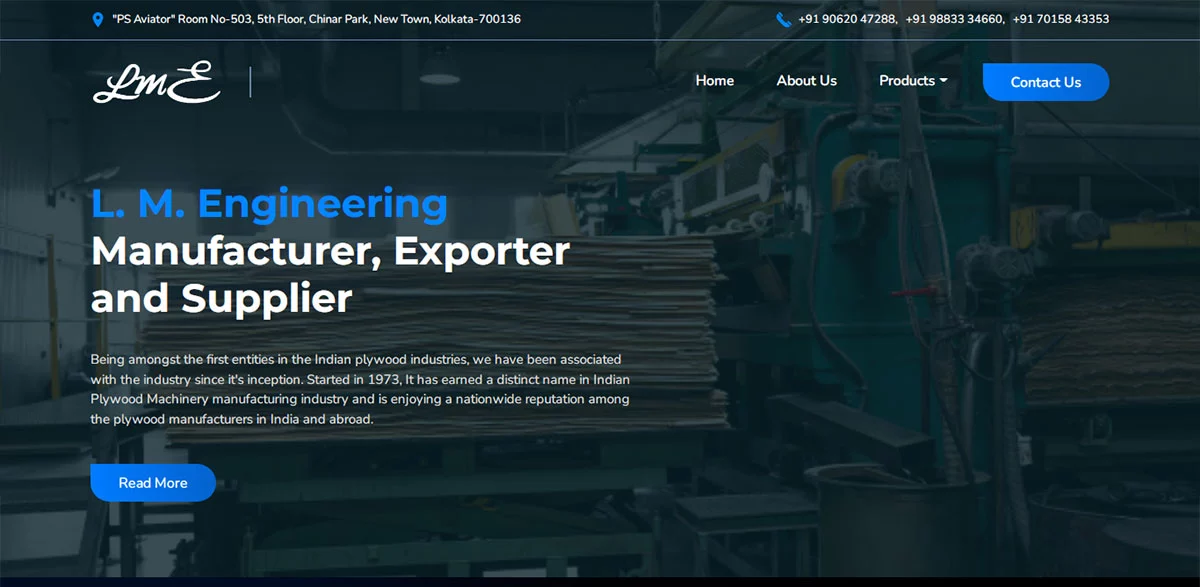In the quickly changing world of online retail, e-commerce companies must contend with fierce competition to draw in and win over clients. For e-commerce platforms, search engine optimization (SEO) is essential for increasing traffic, visibility, and sales. In this in-depth article, we explain why SEO is important for e-commerce product sales and look at practical ways to optimize your online store.
What is search engine optimization?
SEO is shorthand for "search engine optimization." It includes a broad range of tactics used to increase the quantity and quality of search engine traffic that leads to a website. The primary goal is to raise your website's search engine rating, which will improve traffic and lead creation.
Online shopping SEO is specifically designed to increase e-commerce sites' lead generation and sales volume. SEO strategies are effective in drawing in more qualified leads, even if your website is currently receiving a lot of traffic. As a result, you increase website traffic while also attracting more potential customers.
SEO enhances your website with little tweaks and even whole redesigns. These include improving its content, designing it better, and loading your web pages more quickly.
On the other hand, an SEO strategy follows a systematic plan to improve your website according to certain standards that search engines use to rank search results. It is not a haphazard strategy. These components are what we call ranking signals.
Think about this: A list of numbered results appears on a search engine every time you do a query. The performance of your website about these ranking signals is the primary determinant of where it seems, be it first or one millionth. Ranking signals include, for example:
- The speed at which pages load
- Adaptability to mobile devices
- Content quality and relevance
- Content organization and website
- Authority of a domain name
- User experience metrics: backlink quantity and quality, bounce rate, page speed, and time on page
The majority of well-known search engine platforms, including Yahoo, Bing, Google, and Baidu, use similar signals. But it's crucial to remember that, because of its sheer dominance, Google is by far the most significant platform for ranking.
Google is by far the most significant platform on which to rank.
With an incredible 92.27% market share in the global search engine market, Google receives almost 90% of all search queries worldwide. Therefore, to put it simply, Google is THE search engine to rank on.
Recognising SEO's function in E-Commerce
Because SEO and its application are the subject of so much debate, jargon, and technical ideas, it is simple to believe that SEO has little to no effect on your bottom line. That being said, the reality is very different. Among the best strategies to boost your earnings is through SEO.
E-commerce sites need both a consistent flow of new consumers and a devoted base of returning customers to survive. It's easier for your business to expand with new customers to bring in more money.
SEO drives in new customers, who are more likely to become repeat customers. When you can win their trust and confidence through SEO, online customers are more valuable to your company throughout their lifetime.
It is how these advantages assist your store:
1. Increased traffic and visibility
A major advantage of SEO for e-commerce is heightened visibility. Businesses may make it easier for potential buyers to find their items by ranking higher in search results by optimizing product pages and other content for relevant keywords. Higher ranks result in more organic traffic, and this is essential for long-term e-commerce success.
2. Reaching a specific audience
Based on their search intent, SEO enables e-commerce companies to target particular consumers. Businesses may draw highly relevant traffic made up of people who are actively trying to buy comparable products by optimizing for long-tail keywords and product-specific terms. Higher conversion rates are frequently achieved with this focused strategy.
3. Establishing credibility and trust
A high search engine ranking increases consumer confidence and legitimacy. Users typically view the first page of search results as being more reliable and authoritative. E-commerce firms can establish a positive reputation by implementing effective SEO methods, such as creating high-quality backlinks and optimizing for user experience.
4. Economical promotion
SEO presents an affordable marketing option for e-commerce companies when compared to more conventional advertising techniques like display ads or sponsored search. Although SEO demands a time and resource commitment up front, the long-term advantages include consistent organic traffic and a decreased need for paid advertising.
Essential SEO techniques for successful e-commerce
Now that we know how crucial SEO is to e-commerce, let's look at some practical methods for optimizing your online business to get the most exposure and sales possible:
Keyword kinds and applications
After discussing the importance and benefits of SEO, let's examine it in more detail. The primary objective of search engine optimization is to provide searchers with relevant content. However, to provide material that is relevant to searchers, you must understand what they find appropriate. That's what keywords are for.
Keywords might consist of a single word, such as "dogs," or multiple words, such as "dog toys." It might also be a whole sentence, as "dog toys made of rubber." Regardless of their length, all keywords serve the same purpose: they capture the essence of the search terms that people use to find your website.
Using keywords in your online material is essential since it could show up in search engine results. Content relevancy is one ranking metric that search engines evaluate. Search engines use keywords to assess how relevant the content is to your website.
Categories of keywords
Different kinds of keywords exist. There are several keyword types—up to ten or more, depending on where you look—but most of them are purely technical, so you shouldn't be too concerned about them.
Nevertheless, you should be aware of the following fundamental categories of keywords:
- Long-tail search terms: Though it would be more appropriate to refer to them as keywords with low search volume, these are commonly known as Google searches with two or more words. Long-tail keywords are more focused versions of a root phrase. For example, "dog toys" has a long-tail counterpart called "rubber toys for dogs." Since it may be simpler to rank highly for these keywords, it is frequently more beneficial to target them.
- Keywords related to buyer/search intent: Keywords with search intent make it easier to comprehend why a query is being asked. For example, searching "best places to buy a silk scarf" is not the same as searching "how to style a silk scarf." One is commercial; the other is informational. Below, we'll go into more detail about the significance of these keywords and how to employ them.
- Geo-targeted keywords: The simple nomenclature for local searches is "geo-targeted keywords." In essence, local businesses find these keywords extremely valuable as they are associated with a particular area. Half of users who conduct a local search within a day go to a store, according to data from Google.[ixiv] One instance of a local search would be "buy dog food in Manila.
- Relevant vertical keywords: These are similar but distinct keywords. For instance, "fashion styles for women" and "how to style a silk scarf" are identical since they both focus on the same search term: fashion. By optimizing for related vertical keywords, you can reach a wider audience and discover new business prospects.
- Keywords for latent semantic indexing: These terms are essentially synonyms and are also referred to as semantic keywords. They relate to synonymous or similarly comparable words and phrases. For example, "French Bulldog" and "Frenchie" are semantic keywords since they relate to the same kind of dog. These keywords can help you add richness to your website and increase organic traffic by allowing you to diversify your content.
1. Research and optimization of keywords
Keyword research is a solid basis for successful e-commerce SEO. Choose appropriate low-competition keywords with large search volumes to target your product pages. Use resources like Ahrefs, SEMrush, and Google Keyword Planner to find profitable keywords that complement your offerings and target market.
2. Product page optimization
It is necessary to optimize each product page for a specific target term. Incorporating pertinent keywords into product descriptions, titles, and meta tags should happen naturally. High-quality images and structured data markup, such as schema.org, can improve search engine visibility.
3. Content promotion
Your e-cooptimizedO approach should include content marketing, so write blog entries, how-tos, or videos about your products. In addition to boosting SEO, providing informative or entertaining content to your audience fosters relationships and encourages return visits.
4. Optimization for mobile devices
Mobile optimization is essential for SEO performance as more people visit e-commerce websites using mobile devices. Ensure that your website's user experience is consistent across all devices, loads quickly, and is responsive.
5. Link-building optimization: Develop a strong backlink profile by obtaining links from well-known websites and influential people in your field. Prioritise quality above quantity, and steer clear of unsolicited link-building strategies that could undermine your SEO efforts.
6. Optimization of user experience (UX)
Conversion rates rise when users have a nice experience, and SEO also gets better. To maintain users' interest and satisfaction, enhance page load times, optimize navigation, and make sure the design is user-friendly,
7. Observation and optimization
SEO is a continuous endeavour. With tools like Search Console and Google Analytics, monitor your website's functionality at all times. Also, monitor user behaviour and traffic and optimize keyword rankings to pinpoint areas that need optimization.
Which is more effective for link building or on-page SEO in eCommerce?
Link building and on-page SEO are crucial components of any Internet marketing strategy. Combining them can maximize their effects. Well-written, relevant content that has been thoroughly optimized and produced can assist in targeting potential customers with SEO. On the other hand, link building can help you create high-quality links that will raise the website's search engine optimization. Each strategy has advantages and disadvantages. Therefore, it's critical to choose the best one for your company.
Conclusion
SEO is essential for an e-commerce plan to be successful. E-commerce companies can raise sales by using efficient SEO strategies to promote exposure, draw in targeted visitors, and eventually increase sales. In addition to producing immediate benefits, SEO investment builds the groundwork for long-term expansion and competition in the online market. Accept SEO as a strategic requirement, and you'll see your e-commerce company prosper in the cutthroat online market.
Recall that SEO is a long-term investment rather than a short fix. To beat out the competition and have long-term success selling e-commerce products online, keep up with the most recent SEO trends and best practices.
Hexadesigns is dedicated to creating customized websites and web applications that drive business success. We are committed to delivering high-quality, impactful designs that elevate your online presence. Contact us today to take your digital presence to the next level.
Next PostPrevious Post







